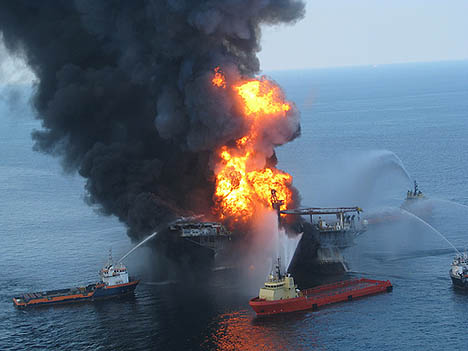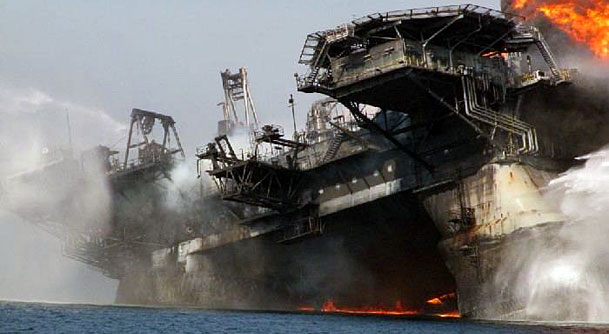
Incident Report
Subject: Improper Coast Guard Fire fighting Responsible For Sinking Deepwater Horizon? Maybe, Date of Email report: Thu 29/07/2010 Report Detail:
A new report by The Center for Public Integrity reveals that, in the hours after the Deepwater Horizon oil rig caught on fire, the US Coast Guard failed to follow its own internal fire fighting procedures, potentially causing the rig to sink and the riser pipe, from which the majority of the oil in the Gulf spill would begin flowing, to rupture. The implications of this are pretty big, so I wholly encourage you to read the full piece linked above, but this is the gist of it: Coast Guard Doesn't Have Oil Rig Fire fighting Expertise According to evidence gathered by the Coast Guard, and pieced together by CPI, the Guard didn't follow it's own policy for fire fighting, which is to ensure that a fire fighting expert is appointed to supervise efforts. Coast Guard officials told CPI that they don't have the expertise to fight oil rig fires. Guard guidelines state that their personnel are not to "actively engage in fire fighting expect in support of a regular fire fighting agency under the supervision of a qualified fire officer." Standard procedure is that responsibility for fighting an oil rig fire rests with the owner and operator of the rig, with the Coast Guard focusing on rescuing survivors. Coast Guard incident logs obtained by CPI show that no attempt was made by the Coast Guard Command Center in New Orleans to designate a fire marshall to supervise the fire fighting. Water Overwhelmed Rig's Ballast, Leading to Sinking Currently the Coast Guard is looking into whether an excess of salt water, sprayed onto the Deepwater Horizon by private boats attempting to quell the flames overran the rig's ballast system, causing its weight distribution to shift, the platform to list, and sink. If Rig Didn't Sink, Could Spill Have Been Contained? The liability part--which no doubt will attempted to be used to pass blame by BP, Transocean, and Halliburton--is that the riser pipe didn't start leaking until after the rig sank. Could it be proven that the rig would not have sunk had proper fire fighting procedures be followed, it could be argued that liability for the severity of the spill does not solely rest on actions aboard the Deepwater Horizon prior to the initial explosion. Whether that line of reasoning would fully work, obviously remains to be seen.
Additional Documentation: |


